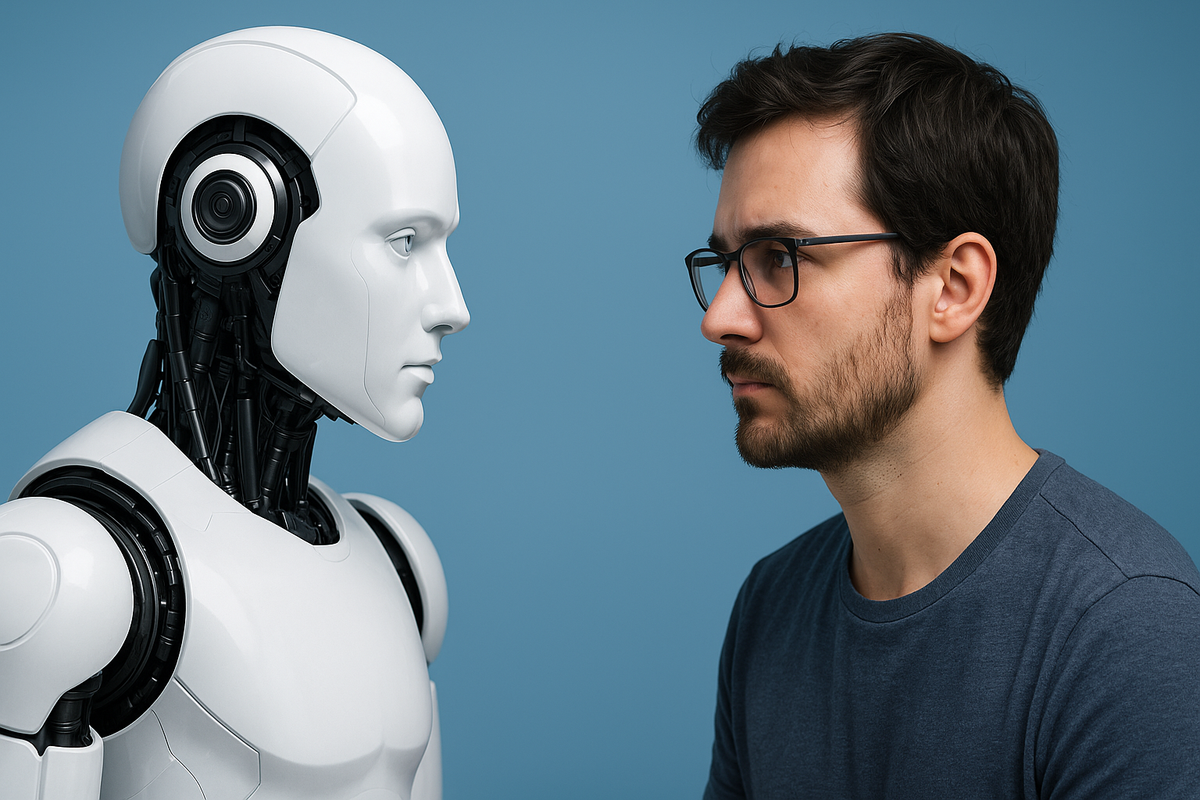Will the rise of AI replace software developers?

How can a machine replace a skilled software developer or engineer?
There’s no denying that machines are incredibly powerful. They can analyse vast amounts of data, follow instructions with absolute precision, and execute tasks with remarkable speed and efficiency. But what they lack - at least for now - are the human traits that make software development such a deeply creative and thoughtful discipline. They don’t possess emotions, ethical reasoning, or the ability to make nuanced decisions in the face of uncertainty. Simply put, machines are only as good as the instructions they're given.
The rise of OpenAI's ChatGPT and other generative AI tools has captured global attention - and rightly so. These tools can perform a wide range of tasks: generating workout plans, writing articles in various styles, answering complex questions, and even producing snippets of code. Impressive, yes. But flawless? Not quite. Generated code still often needs debugging, and the output lacks the context and intent that human developers bring.
So naturally, this leads to a question many in the tech world are asking:
Will AI replace software developers?
Here’s why I believe the answer is no - at least, not entirely. Instead of replacement, what we’ll likely see is evolution in how developers work, with AI becoming a collaborative tool rather than a competitor.
1. Creativity
True creativity is born from experience, curiosity, and individual thought processes - none of which AI possesses in the human sense. Developers solve real-world problems using abstract thinking, intuition, and imagination. They create entirely new concepts, user experiences, and system architectures from scratch.
AI, on the other hand, generates content based on pre-existing data. While it can combine and remix information in clever ways, it doesn’t create in the same sense humans do. It's limited to what's already been done - meaning its "ideas" are always derivative, no matter how novel they may seem.
2. Problem Solving with Context
AI is incredibly good at solving specific, well-defined problems - especially ones it has seen before. But real-world software development is rarely that tidy.
Developers regularly navigate ambiguous business requirements, make judgement calls that involve trade-offs, and factor in things like user behaviour, performance bottlenecks, scalability, technical debt, and team dynamics. These decisions require context, empathy, and a deep understanding of both people and systems.
While AI can support problem-solving, it doesn't yet have the depth to fully understand the broader context of a project or why certain decisions are made. It can’t ask the right questions when the requirements are unclear. And it certainly can’t advocate for user needs in the way a good developer can.
3. Communication and Collaboration
Software isn’t built in isolation. It’s a collaborative process involving clients, designers, testers, product owners, and other engineers. Much of a developer's job is about communication - discussing ideas, reviewing code, mentoring juniors, understanding stakeholder needs, and being part of a team that builds something meaningful together.
AI can’t replace this human element. At best, it can automate repetitive or boilerplate tasks. But it can’t replace the trust, relationships, and decision-making dynamics that come with human teams.
4. Ethical and Moral Judgement
Modern software development also includes ethical decision-making. Whether it’s building inclusive design, handling user data responsibly, or considering the impact of automation, developers are increasingly called to think beyond code.
AI, by contrast, doesn’t have morals - it reflects the biases in the data it was trained on and follows logic without understanding its consequences. Humans are still needed to make sure technology is used responsibly and for the right reasons.
5. AI Is a Tool, Not a Threat
Instead of fearing AI, developers should embrace it as a powerful tool. Just as compilers, IDEs, and version control transformed the developer experience, AI is simply the next leap forward in productivity.
It can help generate ideas, speed up mundane tasks, assist with testing, and offer suggestions - but the real magic still comes from the human behind the keyboard.
Conclusion
Will AI change how we write software? Absolutely.
Will it make developers redundant? Not a chance - at least not those who adapt, continue learning, and lean into what makes us uniquely human.
As with any powerful tool, those who learn how to work with AI will have a huge advantage. The key is to use it to enhance your work, not to fear it.
Comments ()